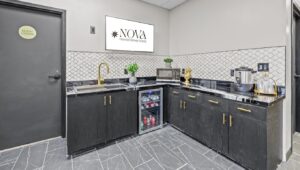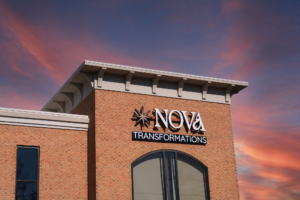
Alcohol Rehab Charlotte NC: A Supportive Guide to Recovery with Nova Transformations
Alcohol rehab Charlotte NC resources are here to help you take a confident first step. At Nova Transformations (Charlotte metro, Matthews), we guide families with evidence-based care, practical supports, and a compassionate team that meets you where you are—without judgment.
Educational content only; not medical advice. For emergencies, call 911.
Charlotte Snapshot: Alcohol Use & Community Context
Mecklenburg County is one of the Southeast’s fastest-growing regions—Uptown, South End, Ballantyne, SouthPark, University City, Matthews, and more. Growth brings opportunity, stress, and evolving patterns of alcohol use. Local and national public-health agencies track the health and economic burden tied to heavy drinking and alcohol-related harms.
For local data, see Mecklenburg County Public Health’s Community Health Assessment (CHA) and county Data & Reports. For statewide trends, explore North Carolina BRFSS indicators on excessive drinking and the NC DHHS hub on alcohol-related harms. National context is available via the CDC Alcohol Use pages and Facts About Excessive Drinking.
Local media also cover shifts in alcohol availability and policy. See Charlotte Observer on Mecklenburg ABC profits and Axios Charlotte on ABC To Go. These reflect broader demand and access, which influence community health outcomes and underscore the value of timely treatment access.
What Is Alcohol Use Disorder (AUD)?
Alcohol Use Disorder is a medical condition marked by impaired control over drinking, preoccupation, continued use despite harm, tolerance, and sometimes withdrawal. Severity ranges from mild to severe. Most importantly, AUD is treatable. Evidence-based therapies, medications, and family supports improve outcomes—especially when combined in a comprehensive plan.
Signs you may benefit from structured treatment:
- Drinking more or longer than intended, or failed attempts to cut back
- Cravings; drinking interfering with work, school, parenting, or relationships
- Drinking despite medical, legal, or financial consequences
- Needing more to feel the same effect (tolerance)
- Withdrawal symptoms (e.g., tremor, sweats, insomnia, anxiety, nausea) when stopping
If these patterns feel familiar, a private assessment can clarify safety needs (e.g., whether detox is needed), level of care, and next steps. Start here: Contact Nova Transformations • Verify Insurance.
Why Alcohol Rehab (vs. Going It Alone)?
Alcohol withdrawal can be uncomfortable—and sometimes dangerous. Depending on your drinking pattern and medical history, clinical supervision may be needed (e.g., to manage seizures or delirium tremens risk). Structured programming delivers what willpower alone can’t: assessment, therapy, skills practice, medication consults, family education, relapse-prevention planning, and community.
Rehab isn’t “one size fits all.” The right level of care helps you stabilize quickly, build momentum, and protect your time, family, and work obligations.
- Talk privately now: (704) 997-3500
- Fast-track benefits: Verify Insurance
- Learn more: Alcohol Rehab in Charlotte
Levels of Care (Detox, Inpatient, PHP, IOP, OP)
The ASAM continuum guides level-of-care decisions. In the Charlotte market, you’ll typically see:
1) Medical Detox (Acute Withdrawal Management)
For moderate-to-severe withdrawal risk, detox provides 24/7 monitoring and medications to manage symptoms and prevent complications. Many people transition directly from detox into structured programming to maintain gains.
2) Residential / Inpatient Rehab
A live-in setting with round-the-clock support and daily treatment. Appropriate when home triggers are intense, safety needs are high, or intensive stabilization is needed.
3) Partial Hospitalization Program (PHP)
Day treatment (often 5–6 hours/day, multiple days/week) with medical and therapeutic services; you return home or to recovery housing at night. PHP balances intensity with real-world practice.
4) Intensive Outpatient Program (IOP)
Focused group + individual therapy several days per week (e.g., 9–12+ hours weekly). Ideal for step-down from higher care or for those needing structure while managing work/school/parenting.
5) Outpatient (OP) & Ongoing Therapy
Weekly or bi-weekly therapy, medication follow-up, and relapse-prevention supports. Outpatient is a long-term scaffold for sustainable sobriety.
At Nova, we focus on evidence-based outpatient levels (PHP/IOP/OP) with integrated dual-diagnosis care—and coordinate closely if you need detox or inpatient first. Explore: Substance Misuse Services • Therapy Approaches.
Dual-Diagnosis: Treating Alcohol Use & Mental Health Together
Alcohol use and mental health often move together—anxiety, depression, PTSD, ADHD, and bipolar spectrum symptoms commonly intertwine with drinking. Treating one without the other leaves people vulnerable to relapse. That’s why Nova emphasizes integrated, dual-diagnosis care with therapy, skills, and medication management when appropriate.
- Individual Therapy for skills, coping, and insight
- Family Therapy for communication and boundaries
- Breathwork and experiential supports for stress regulation
- Care coordination with prescribers (e.g., naltrexone or acamprosate when indicated)
Nova’s Approach: Clinical, Holistic & Family-Centered
We tailor care to the whole person. After a thorough assessment, your plan may include:
- Motivational interviewing; CBT/DBT-informed groups
- Relapse-prevention planning and sober-support mapping
- Medication consults for alcohol use (as indicated) and sleep/stress supports
- Experiential therapies (e.g., breathwork)
- Family education and coaching to create a recovery-friendly home
- Step-down pathways (PHP → IOP → OP) and alumni/community supports
Learn more about our team and space: About Us • Our Facility • Our Blog.
Costs & Insurance: What to Expect
Cost depends on level of care, program length, and benefits. We’ll help you understand deductibles, co-pays, and any out-of-pocket responsibilities before admission so there are no surprises. Many clients are relieved to learn treatment is more attainable than they assumed—and far less costly than the ongoing expense of alcohol-related crises.
Start now: Verify Insurance or call (704) 997-3500.
Local Charlotte Resources & Helpful Links
- Mecklenburg County Public Health — Community Health Assessment • Data & Reports
- NC DHHS — Alcohol-Related Harms Data • BRFSS: Excessive Drinking
- CDC — About Alcohol Use • Facts About Excessive Drinking
- SAMHSA — Find Help & Treatment • Medications for SUD
- Local media: Charlotte Observer (ABC profits) • Axios (ABC To Go)
Outbound links are for education; Nova does not control or endorse third-party content.
How to Choose an Alcohol Rehab in Charlotte
- Evidence-based care. CBT/DBT-informed therapy, motivational interviewing, relapse-prevention, and access to medications when appropriate.
- Dual-diagnosis capability. Anxiety, depression, PTSD, ADHD, bipolar—these must be addressed alongside alcohol use.
- Fit & logistics. Hours, location, transportation, family/work alignment. Consistency builds momentum.
- Transitions & aftercare. Step-down planning (PHP→IOP→OP), alumni, and community supports.
- Transparent costs. Use our insurance verification to avoid delays.
We’re glad to answer questions—even if you don’t enroll with us. Contact Nova Transformations or call (704) 997-3500.
FAQs: Alcohol Rehab Charlotte NC
Do I need detox before starting treatment?
How long does alcohol rehab take?
Do you use medications for alcohol use disorder?
Is treatment confidential?
Do you accept my insurance?
Where are you located?
References & External Sources
- Mecklenburg County Public Health — Community Health Assessment • Data & Reports
- NC DHHS — Alcohol-Related Harms Data • BRFSS: Excessive Drinking
- CDC — About Alcohol Use • Facts About Excessive Drinking
- SAMHSA — Find Help & Treatment • Medications for SUD
- Local media: Charlotte Observer (ABC profits) • Axios (ABC To Go)
Outbound links are for education; Nova does not control or endorse third-party content.
One Conversation Can Change the Next Year
You don’t have to do this alone. Whether you’re exploring options or ready to begin, our team will listen and help you plan next steps that fit your life.









